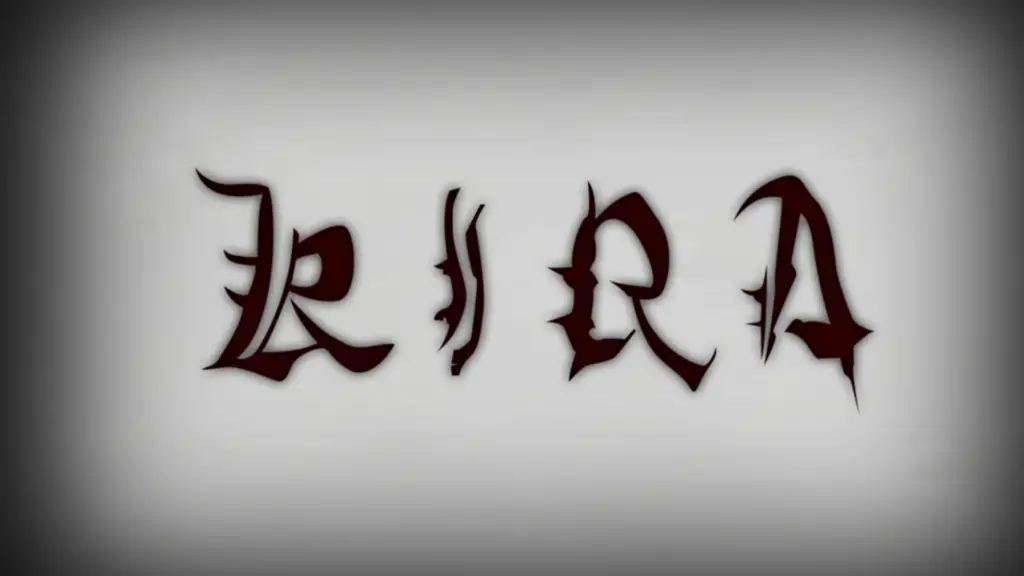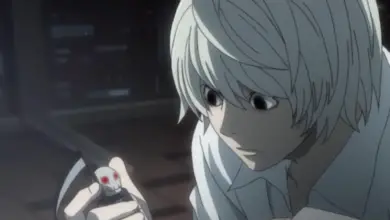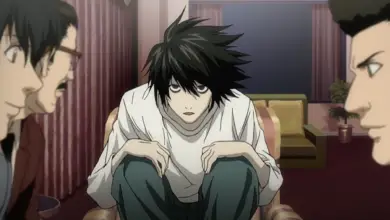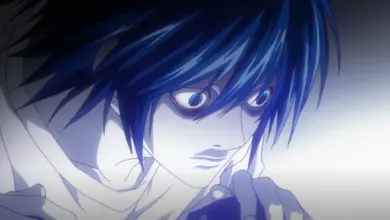
The name ‘Kira‘ is a vital element in the manga and anime series ‘Death Note‘, serving as an alias that embodies fear, power, and a distinctive form of justice.
Originating from the English word ‘killer’, ‘Kira’ symbolizes the central character’s role as a life-taker, serving as a relentless vigilante or a ruthless murderer, depending on one’s perspective.
This article delves into the meaning, symbolism, and implications of ‘Kira’ in the intricate narrative of ‘Death Note’.
Meaning and Symbolism of the Name ‘Kira’

The name ‘Kira’ holds immense significance in the intricate narrative of ‘Death Note’, both on the surface level and in terms of deep, symbolic meaning. Notably, ‘Kira’ is not the birth name of the character but rather a moniker that’s acquired as the story unfolds.
In the original Japanese context of ‘Death Note’, ‘Kira’ (キラ) is derived from the English word ‘killer’. This derivation reflects the character’s principal role in the narrative as a figure who causes death, particularly towards criminals, in an attempt to cleanse the world of what he perceives as evil. The phonetic similarity between ‘killer’ and ‘Kira’ serves to reinforce this grim yet defining aspect of the character’s identity.
The use of the English word ‘killer’, transliterated into Japanese and then read back into English, adds a layer of intrigue to the character’s name. This cross-cultural wordplay gives Kira a global, almost universal aspect, reflecting the character’s ambition to change the entire world.
On a deeper level, the name ‘Kira’ symbolizes the duality of the character. While ‘killer’ has undeniably negative connotations, the character of Kira sees himself as a righteous force for justice, killing only those who he believes deserve punishment. This highlights the moral ambiguity and philosophical complexities woven into the fabric of ‘Death Note’.
The concept of a name change or the adoption of a pseudonym often signifies a transformation or transition, which is quite true in the case of Kira. This name becomes an embodiment of power, fear, and justice, creating an iconic identity that is deeply rooted in the themes of ‘Death Note’.
The name ‘Kira’ in ‘Death Note’ is more than just a label for a character. It is a symbolic entity that encapsulates the character’s role, intentions, transformations, and the underlying themes of morality and justice present in the series.
Who is ‘Kira’ in Death Note?

‘Kira’ is an alias used by the main character in the popular manga and anime series ‘Death Note’, created by Tsugumi Ohba and Takeshi Obata. The term ‘Kira’ becomes synonymous with a mysterious entity causing the deaths of numerous criminals around the world, stirring both fear and admiration among the global populace.
The character who assumes the title of ‘Kira’ is Light Yagami, a high-achieving high school student who stumbles upon the Death Note, a supernatural notebook dropped into the human world by a shinigami (a death god) named Ryuk. This Death Note has the power to kill anyone whose name is written in it, provided the writer knows the person’s face to avoid affecting people with the same name.
Driven by a strong sense of justice and a godlike complex, Light Yagami takes up the Alias ‘Kira’ and embarks on a mission to eradicate crime by killing criminals. He envisions creating a utopian world free of evil, where he will reign as a benevolent god.
Throughout the series, the mantle of ‘Kira’ is also assumed by other characters who come into possession of a Death Note, leading to a complex narrative of power, morality, and a thrilling cat-and-mouse chase between Kira and those trying to uncover his true identity. This, in essence, is the core of the ‘Death Note’ series.
Despite the various individuals who take on the persona of Kira, the original and most iconic Kira remains Light Yagami, the brilliant yet morally ambiguous character whose actions drive much of the plot in ‘Death Note’.
Public Perception of Kira in the Death Note Universe
In the universe of ‘Death Note’, the public perception of Kira is decidedly mixed, serving as a reflection of the complex moral issues posed by the series. Kira’s actions create a global stir, leading to an intense debate about the morality, ethics, and legality of his form of justice.
Many view Kira as a god-like figure, a vigilante who steps in where the established legal and justice systems have failed. These supporters see Kira as a purveyor of swift and absolute justice, meting out punishments to criminals who have otherwise evaded the law. They appreciate the decreased crime rates worldwide and the fear that Kira instills in potential criminals. In the series, this group of supporters even forms a quasi-religious movement, the ‘Kira cult’, showing the profound impact Kira has on society.
On the other hand, Kira also instills fear and trepidation among those who view his actions as equivalent to mass murder, regardless of the guilt of his victims. These individuals argue that Kira’s method of dispensing justice amounts to playing god, deciding who lives and who dies based on a personal, arguably skewed, moral code. They believe that justice should be served through due process of law, not at the whim of an individual with a supernatural power.
This divide in public perception also reaches into law enforcement agencies worldwide. While many officers seek to apprehend Kira, viewing him as a dangerous criminal, others are less zealous in their pursuit, seeing some merit in Kira’s actions.
Throughout the series, the public’s perception of Kira continually evolves and fluctuates. As the narrative develops and Kira’s actions have wider-reaching implications, public opinion shifts, reflecting the complex dynamics of societal norms, morality, and justice in the face of Kira’s radical methodology. This varied perception adds to the narrative depth and moral complexity of ‘Death Note’, making it a fascinating study in ethics and societal response to perceived vigilante justice.


